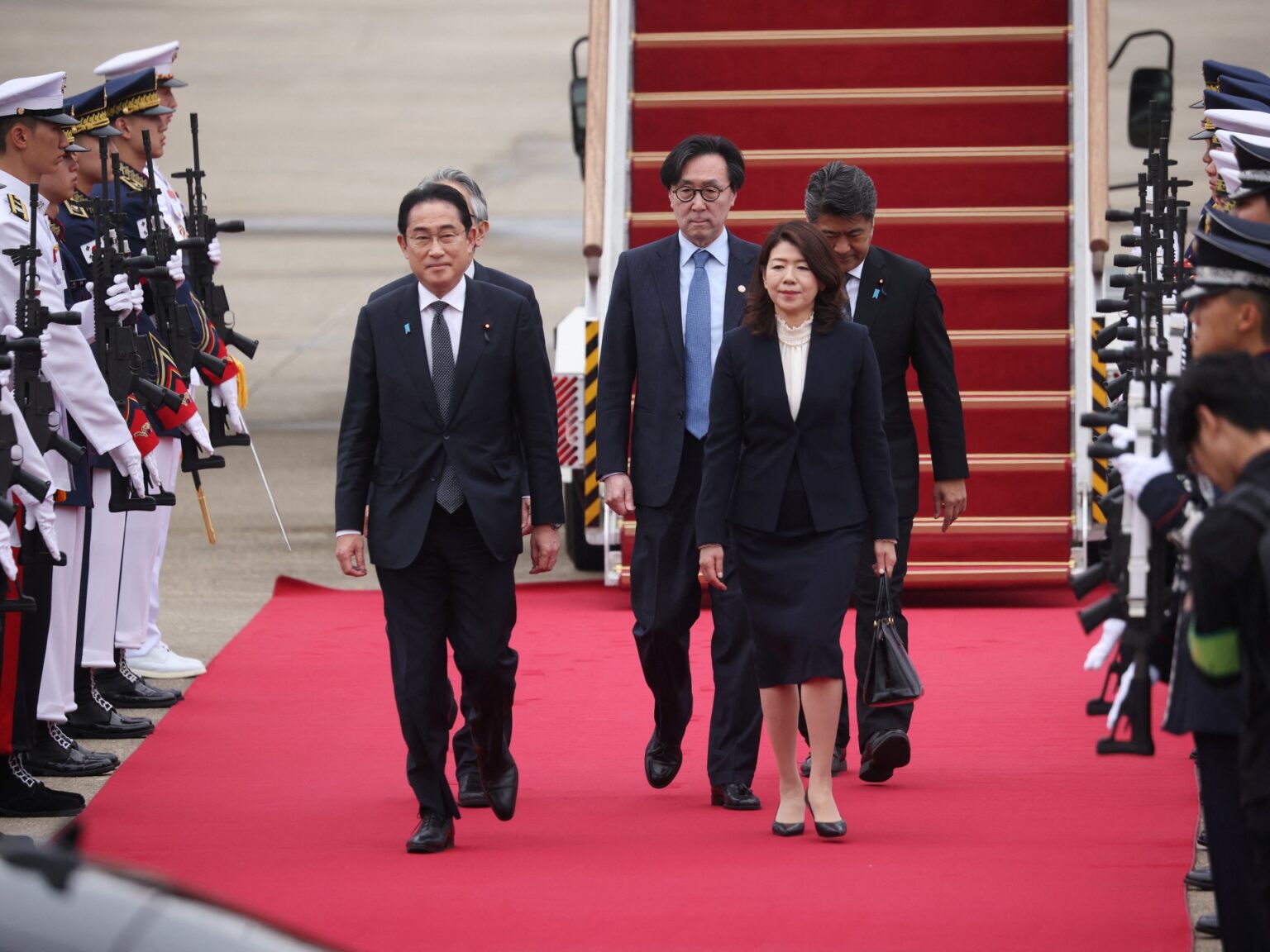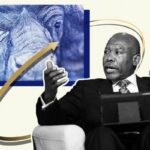Global Courant 2023-05-07 10:36:01
Prime Minister Fumio Kishida’s visit is the first visit by a Japanese leader to Seoul in 12 years.
Japanese Prime Minister Fumio Kishida has arrived in South Korea’s capital Seoul to meet President Yoon Suk-yeol as the two leaders attempt to mend ties amid nuclear threats from North Korea.
Kishida’s bilateral visit on Sunday is the first by a Japanese leader to Seoul in 12 years.
It depicts Yoon’s trip to Tokyo in March, where they sought to close a chapter on the historic disputes that have dominated Japan-South Korea relations for years.
“I hope for a frank exchange of views with President Yoon based on our relationship of trust,” Kishida told reporters before leaving for Seoul.
“Since March there have been several levels of communication, including on finance and defense, and I intend to continue this ongoing trend.”
South Korean and Japanese officials said Yoon and Kishida will discuss North Korea’s nuclear program, South Korean-Japanese economic security and general relations, and other unspecified international issues.
South Korean officials also hope Kishida will make some sort of gesture in return for concessions made by Yoon’s government in a long-running feud over forced labor during Japan’s colonization of the Korean peninsula from 1910 to 1945.
The dispute escalated in 2018 when South Korean courts ordered two Japanese companies to compensate some of their aging former Korean employees for forced labor, prompting the two countries to impose economic retaliatory measures.
In an effort to mend ties, Yoon has suggested that South Korean companies – not Japanese companies – compensate war labor victims.
The move has sparked strong backlash from some victims and criticism that Yoon has given more than he received in his efforts to mend relations with Japan, but few observers expect a further formal apology from Tokyo for historic wrongdoings.
Yoon himself has indicated that he does not think this is necessary.
After his summit with Yoon in March, Kishida had said he upholds the positions of previous Japanese governments, including one echoed in the landmark 1998 Tokyo-Seoul joint statement on improving ties, but did not apologize again. In the 1998 statement, then-Japanese Prime Minister Keizo Obuchi said, “I feel acute remorse and apologize from the heart” about colonial rule.
The focus of the new summit is likely to revolve around security cooperation in the face of North Korea’s nuclear threats, said Shin-wha Lee, a professor of international relations at Korean University in Seoul.
“In the context of the ‘Washington Declaration’ outlining plans to strengthen comprehensive deterrence, Korea will explore ways to strengthen joint efforts with Japan,” she added.
She was referring to a statement made by Yoon and US President Joe Biden during the South Korean leader’s state visit to Washington, DC, last month.
The document proposes establishing a Nuclear Consultative Group to help South Korea better understand and give a voice to US emergency plans to deter and respond to any nuclear incident in the region.
“We have many opportunities to work together when it comes to tackling the threat posed by North Korea” and securing a free and open Indo-Pacific, a Japanese foreign ministry official said.
Analysts in the US, meanwhile, say Washington hopes Kishida Yoon will offer more political support over the concessions.
“White House officials have expressed some frustration with Tokyo’s lukewarm response to the forced labor compensation deal and hope Kishida will use an upcoming visit to South Korea in early May to do more,” said Victor Cha, senior vice president. for Asia and Korea. Chair at the Center for Strategic and International Studies, wrote in an analysis published last week.
Yoon, Biden and Kishida are expected to hold a trilateral meeting later this month on the sidelines of the Group of Seven meetings in Hiroshima to discuss North Korea, China’s assertiveness and Russia’s war against Ukraine.
Yoon was invited as one of eight outreach countries.







